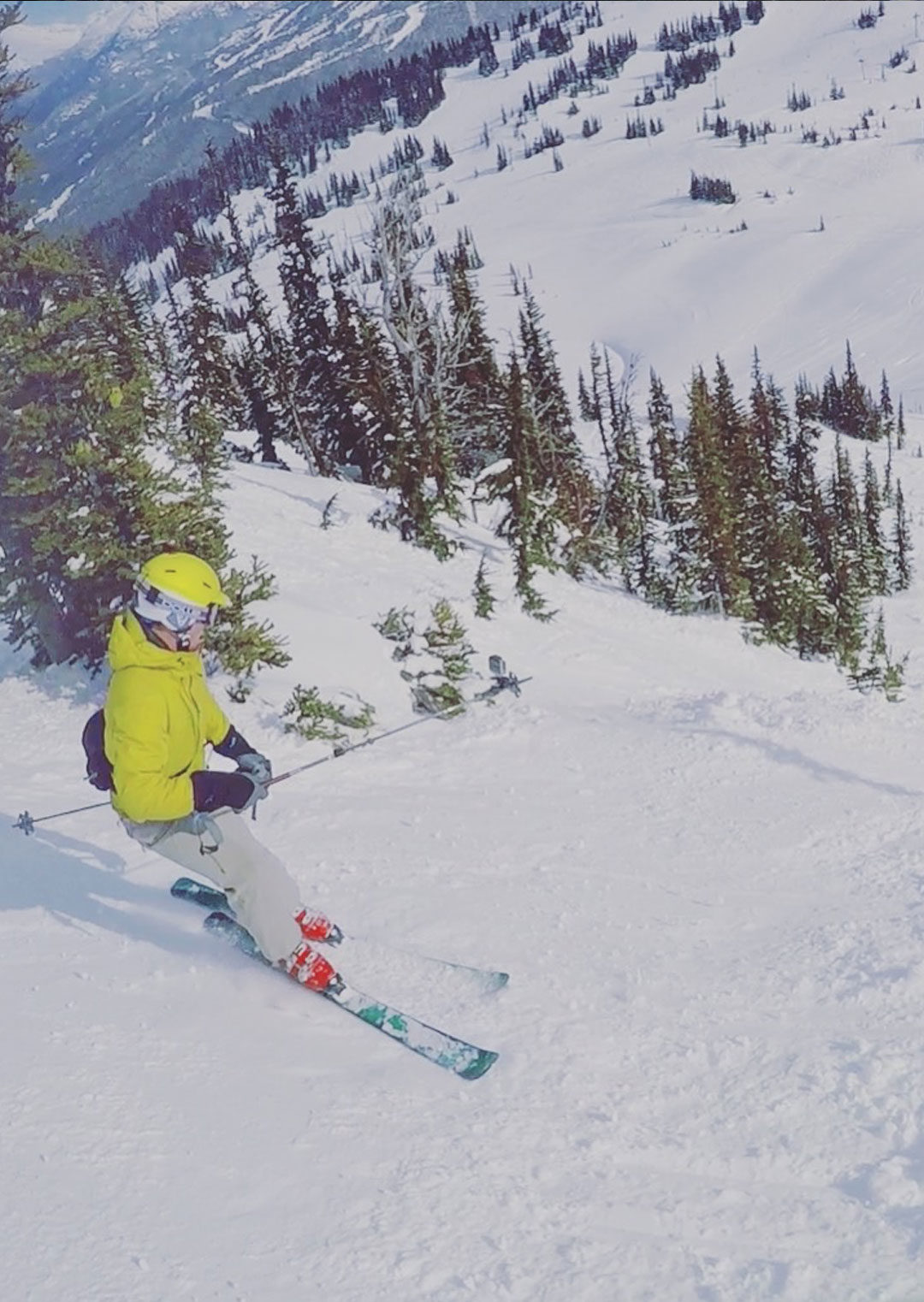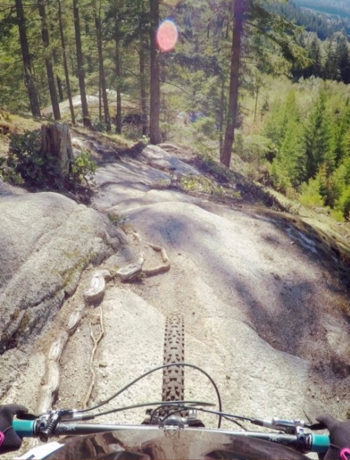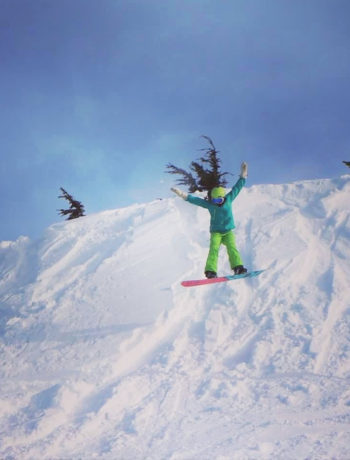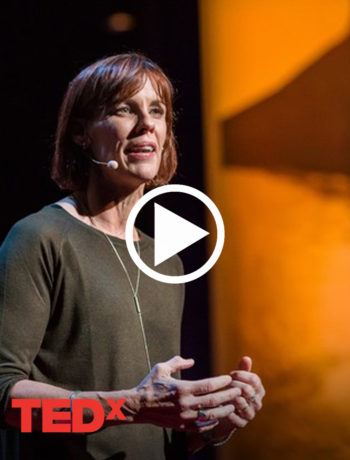If it’s right, it’ll feel right
Why is trusting your gut so powerful? Because your gut has been cataloging a whole lot of information for as long as you’ve been alive. Trusting your gut is trusting the collection of all your subconscious experiences.
If you’ve ever felt uneasy or a sense of danger about a person or situation, but you were unable to figure out why, that’s your intuition talking. The subconscious immediately communicates to us through our emotions. These emotions serve as warning signals. Your intuition is your first line of defense, but you must learn to listen to what it is saying. Author and CIA expert for the prediction and management of violence, Gavin de Becker says as a rule, your intuition is never wrong.
Intuition & your safety
Humans are unlike any other creature, in that they will sense danger, yet still walk right into it.
You’re ski touring on a gorgeous day in a low danger spot with a nice slope, but something just doesn’t feel right. It’s worth listening to your gut—without bias and without ego. Your subconscious can be noticing anything from the snow-pack surface texture, the way the slope is shaded, an odd looking lump or anything else that sets off an intuitive alarm.
Another scenario is waiting for an elevator in your office building late at night. The elevator doors open and there’s a guy inside who gives you an uneasy feeling. You don’t know why, but it feels off. Many women will decide their feeling is irrational, “I don’t want to think bad of him or be the kind of person who closes the door in his face.” And so she gets into a steel soundproof chamber with someone she’s afraid of…
As a side note: Gavin de Beckers states that many women try to be nice to people whose very presence makes them fearful and uncomfortable. They often believe that being rude increases risk, when in fact the opposite is true. Ladies, always trust your gut and be safe!
Neural trail network
Our brains record it all; every interaction, hurt, happy moment and personal decision. Just because you don’t consciously remember every little thing that happened to you doesn’t mean your brain has forgotten. Emotional memories are permanently ingrained into the brain; they can be suppressed, but never erased.
Your brain is like a trail network. When you ride the trails your brain subconsciously takes in information. The more you ride an area the more pathways are created and the more well-trodden the trails become.
Your brain has all these neural trails connecting different responses and information. If you crash on a trail feature and feel fear, that fires a neural connection. The first time you fire this sequence of “Eeeek, off-camber slab I’m scared,” you bushwhack a new brain path. If you continue to feel afraid (negative stimulus, slab = I’m scared) and choose the ride-around each subsequent time, you strengthen the chicken route.
Fast-forward a year later. You’ve forgotten about your crash, you’re riding in a new area and come upon a similar off-camber slab, you hesitate. Your friend is pressuring you to do it, but something in your gut says don’t. This is your intuition using past experiences to do a very quick assessment of the present, based on clues and details that may not be obvious to the rational mind. Your subconscious remembers slab = crash.
The difference between intuition & irrational fear
Using gut-trusting techniques are usually much less life-or-death oriented, but they’re still important to learn. Often those gut feelings are telling you something you should pay attention to, or at least acknowledge and explore before making a decision—But HOW do we learn this technique?
Do you feel expansive or contracted?
If the thought of this big change or decision expands you: your body opens up, you feel excited and it may send your imagination running wild. It feels like a knowing without knowing and groundedness, even if there’s a bit of fear.
If the thought of this big change or choice contracts you: you may become deflated and small, distracted, restricted or have a feeling of dread. It feels like everything moves up into your head and thoughts.
Intuition is expanding. It feels right, it has a compassionate, affirming tone to it. It confirms that you are on track without having an overly positive or negative feel to it.
Fear is contracting and feels anxious, dark or heavy. It has cruel, demeaning or delusional context and it reflects psychological wounds.
Do you feel pulled or pushed?
If you feel pulled to do something because of a passion, desire or yearning in your heart, it’s intuition inviting you in the right direction. If you feel pushed, like you have to do something or feel you should do something, you can bet fear is pushing to into it.
Intuition is creative, Fear is ego
Ego may sound like, “Of course do this because it worked for other people”. Intuition rarely sounds logical or rational, it’s the creative voice—a solution that comes out of left field.
Example of irrational fear vs. intuition
You want to make a career change, but you’re unsure if it’s the right time. If you’re excited and eager to leap into the new career and daydreaming about it, but you’re also nervous than you are most likely just fearful. If the idea of this new career is draining, half-hearted and you dread the idea of it, your intuition is at work.
Gut decision time-frame
Find some space to get quiet and let your mind wander, your intuitive voice will have a far greater chance of being heard. Give yourself a half hour window to make the decision and this will encourage you to be more intuitive.
When you begin to feel confused by an impending change or situation, become self aware and notice whether you are thinking about the past or the future and then consciously pay attention to what is happening in the moment. Are you feeling a certain way, but disregarding it as irrational, unimportant or silly?
Fear is future thinking. Since the unknown is so uncomfortable, we make up stories to fill in the blanks. We magnify our problems ten-fold when we make up stories about the pain we think we’re going to feel. Our stories then cause us to panic.
List every time your gut instinct served you
Being good an trusting your gut takes practice. Try listing all the times you trusted your gut and whether the outcome was favourable. By going through the exercise, you’ll find that when you trusted your gut, you most likely always felt good about the decision.
Go with your gut, always
Whether it’s buying a new home, on the fence about a divorce or deciding to drop into a backcountry slope, it’s so worth it to listen to your gut.
Further reading: Gavin de Becker The Gift of Fear: And Other Survival Signals that Protect Us from Violence
*Photo credit, Robert Wishaw





No Comments